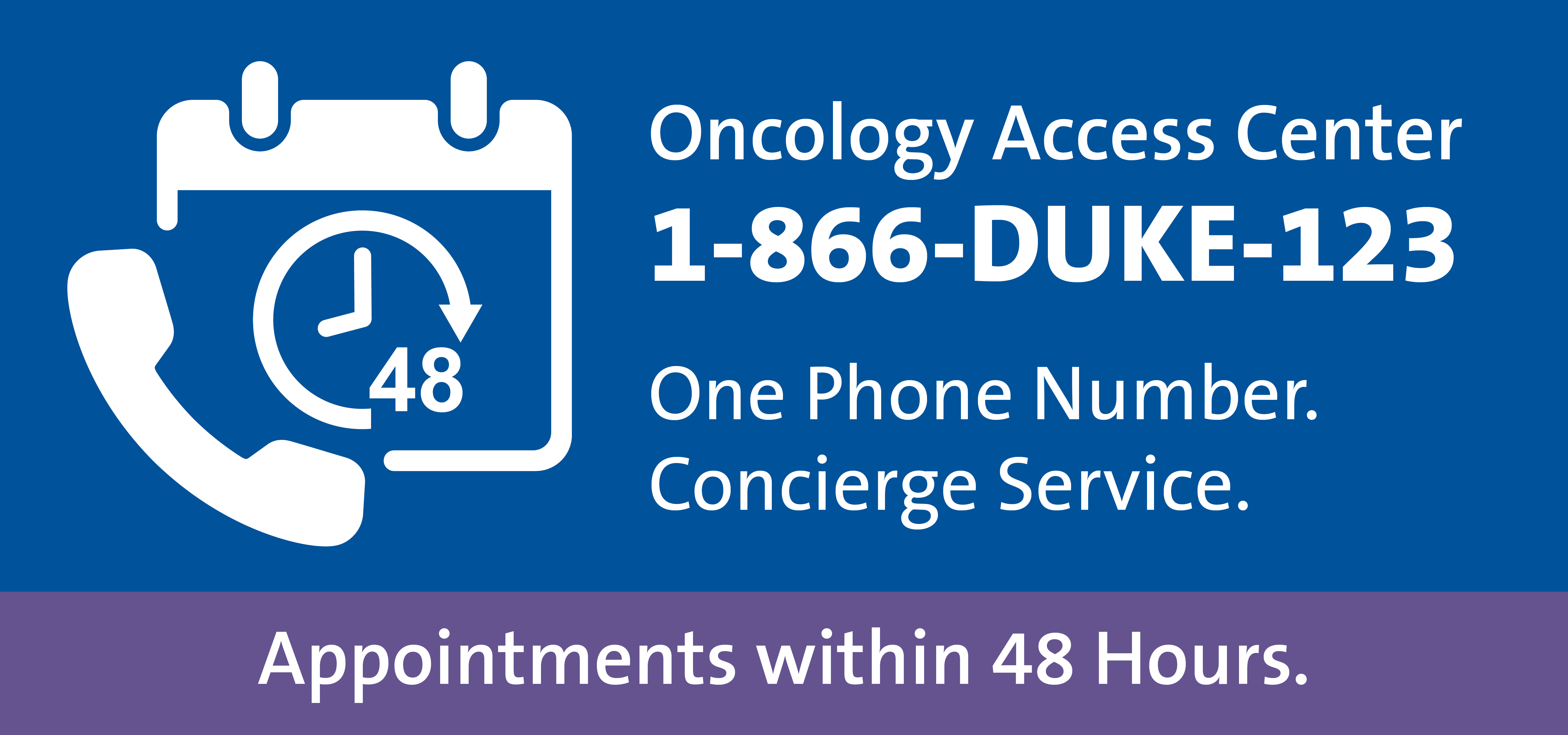
Call the referring provider team Monday through Friday between 8:00 a.m. and 4:30 p.m. at 866-385-3123 (1-866-DUKE-123). You can also email OncologyReferral@Duke.edu or fax 919-613-2316.
The Duke Cancer Institute (DCI) breast oncology team offers the complete continuum of breast cancer care, from risk assessment to diagnosis, cancer genetics, medical and surgical treatment, radiation, reconstruction, and long-term care into survivorship. Breast oncology specialists offer innovative treatments and clinical trials for every stage of breast cancer, with an emphasis on wraparound services to improve patients’ quality of life.
“The Duke breast oncology program is fortunate to offer tremendous resources to all of our patients,” says Shelley Hwang, MD, MPH, a surgical oncologist and surgical director of the breast oncology disease group. “We are committed to making each patient’s experience and outcomes the best they can be, and we’ve made huge strides.”
The team has developed a patient-centered program that delivers personalized care plans for treating patients’ health holistically. “Patients need more than just the best treatments; resources for coping with the emotional and physical aspects of managing a breast cancer diagnosis are important too,” says Carey K. Anders, MD, medical oncologist, director of the Duke Center for Brain and Spine Metastasis (DCBSM), and medical director of breast medical oncology.
One example is a new program providing specialized care for women diagnosed with breast cancer who are under the age of 45. Led by medical oncologist Rani Bansal, MD, a multidisciplinary team addresses concerns for premenopausal women, such as fertility and sexuality, inherited genetic mutations, family and social issues, and physical changes that can impact self-confidence. This program is a coordinated effort from surgical, medical, and radiation oncologists, as well as breast imaging specialists, nurses, genetic counselors, and social workers.
“More aggressive types of breast cancer, like HER2-positive and triple-negative, often affect younger women, and some patients develop central nervous system (CNS) metastasis. The DCBSM is deeply connected to this program for younger women and sees the positive impact it could have on our patients,” says Anders.
Clinical trials
“Clinical trials are a big focus; we have promising options for patients with early-stage to advanced disease,” says Anders. Duke uniquely offers patients with CNS metastasis clinical trial options, where inclusion in such trials at other centers is limited.
The breast cancer clinical trials portfolio includes more than 20 ongoing trials spanning phase 1 to phase 4 studies. “Duke has an emphasis on novel compound trials,” says Anders. “We’re actively working on trials for the next wave of treatments, including antibody drug conjugates.”
Another study led by Alexandra Thomas, MD, DCI, breast medical oncologist, is advancing research on the effects of hormone-sensitive breast cancer therapies on heart health. Anders continues, “We want to identify how treatments are affecting long-term cardiovascular health so we can develop the right dose to treat the disease while reducing potential side effects down the road.”
